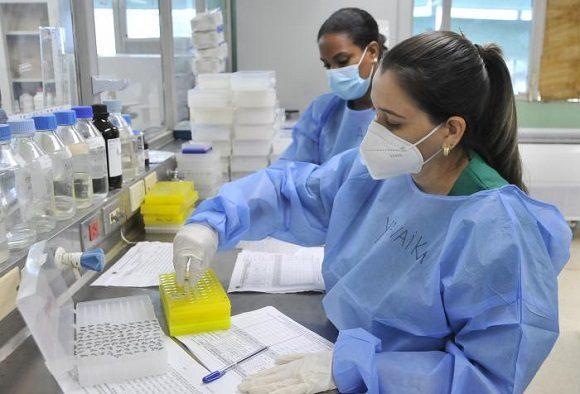Scientists ask to "reduce barriers" to the Cuban biotechnology sector
EFE | Wednesday, 2 November 2022 | Click here for original article

An international delegation of scientists headed by experts from the United States published a report on Monday that calls for "reducing barriers" to increase collaboration with the Cuban biotech industry.
According to the text, 11 experts visited the island last June - the first delegation led by North American scientists in five years - to understand the development of Cuban vaccines against covid-19.
"Cuba can be an important player in increasing global access to life-saving medical advances. And although the policy is complex, we must confront the barriers that prevent contribution," said Michael Osterholm, director of the Center for Disease Research and Policy. Infectious Diseases of the University of Minnesota, cited in the report.
The document, entitled "COVID-19 Vaccine Enterprise: Report from a High-Level Fact-Finding Delegation to Cuba (Covid-19 vaccine initiative: high-level research delegation report in Cuba)", was released in the framework of the annual meeting of the American Society of Tropical Medicine and Hygiene (ASTMH).
The experts pointed out that "Cuba has gradually developed a global network of associations in biotechnology," despite the restrictions imposed by the United States sanctions against the island.
The delegation was organized by the Medical Education Cooperation With Cuba (MECC), an American NGO that promotes collaboration with the island in the field of medicine and research.
"The pandemic that we still face today has been significantly prolonged (...) due to the alarming inequities in access to vaccines (...) Cuba alone cannot close this gap, but it can make a much greater contribution" Rabadán-Diehl, one of the two scientists who led the mission, was quoted in the report as saying.
More than 90% of the vaccinable population on the island -including those between 2 and 18 years old- have the complete scheme of one of the three nationally produced biologicals: Abdala, Soberana 02 and Soberana Plus.
However, Cuban vaccines still do not have the endorsement of the WHO. The island's authorities sent Abdala's documentation at the beginning of the year to have the agency's approval.
Eduardo Martínez, director of the state biopharmaceutical group BioCubaFarma, manufacturer of Abdala, acknowledged in April the existence of a "small delay" in the process to achieve approval.
The experts urged their Cuban counterparts "to move more quickly to secure publications in peer-reviewed journals of the results of their clinical trials," even though they "understood that Cuban scientists were working under challenging circumstances."






